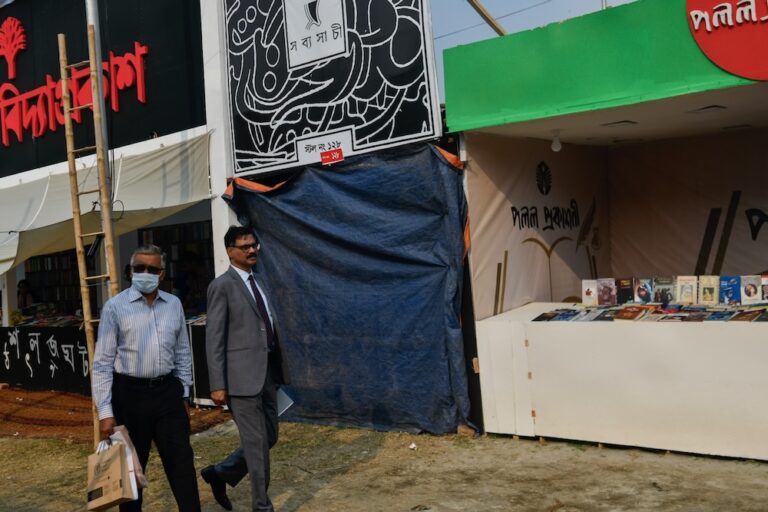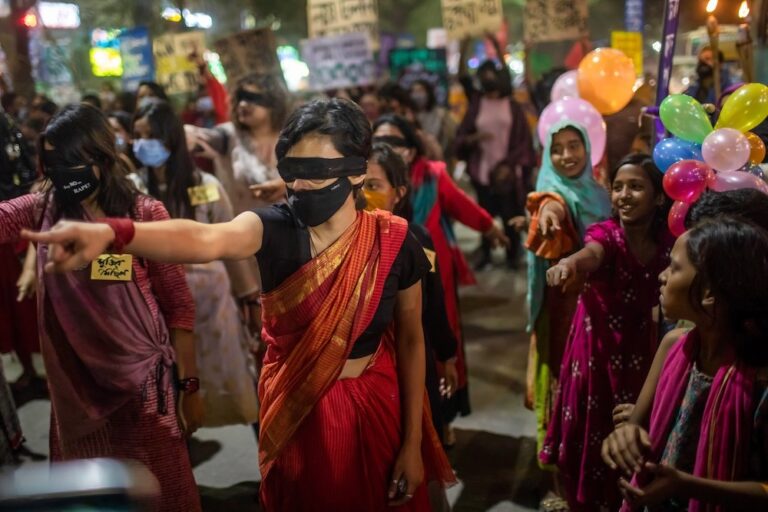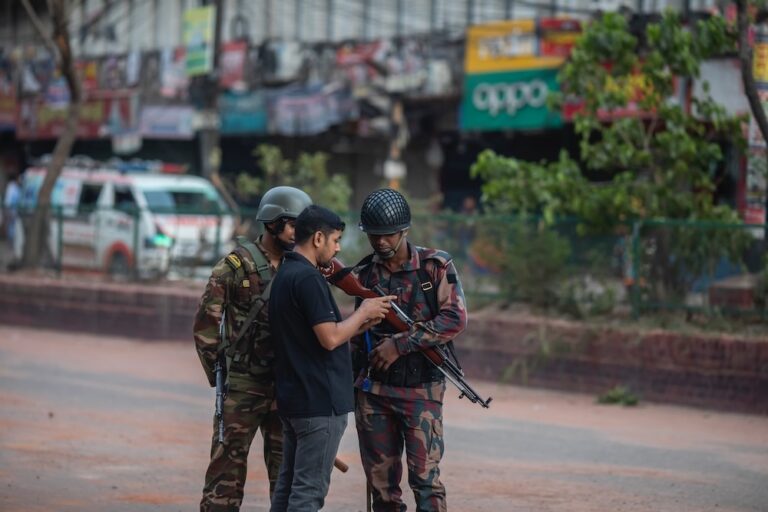In an open letter to Prime Minister Sheikh Hasina, RSF expressed concern about two serious matters that cast doubt on the government's desire to guarantee a favourable environment for the media.
(RSF/IFEX) – In an open letter to Prime Minister Sheikh Hasina, RSF expressed concern about two serious matters that cast doubt on the government’s desire to guarantee a favourable environment for the media:
Her Excellency Sheikh Hasina
Prime Minister
Old Sangsad Bhaban
Tejgaon, Dhaka-1215
Bangladesh
Paris, 30 April 2010
Dear Prime Minister,
Since you became Prime Minister in January 2009, the media have been able to work in a better climate than under the previous, army-backed interim government. Thanks to your administration, some journalists have been freed and harassment by the military has declined.
But we would like to express our concern about two serious matters that cast doubt on your government’s desire to guarantee a favourable environment for the media.
We would firstly like to refer you to yesterday’s death of veteran journalist Foteh Osmani, the magazine Shaptahik 2000’s correspondent in the northeastern city of Sylhet, as a result of the injuries he received when attacked by unidentified armed assailants while riding on motorcycle with a friend 11 days earlier. His assailants clearly set an ambush for him even if their motives are not yet known. Three suspects were arrested.
We urge you to order an exhaustive investigation into Foteh Osmani’s murder in order to establish the identity and motives of those responsible and bring them to justice.
The other matter that is troubling us is your government’s sudden decision to close down the privately-owned Channel 1 TV station, which has been broadcasting for four years. The closure was announced on 27 April by Communications Minister Raziuddin Ahmed Raju, who said it was because the station had violated the 2001 Telecommunications Act by using broadcast equipment as collateral for loans.
According to the minister, the station’s owners were unable to repay their loans with the result that the equipment was seized and auctioned off. Since then the station has been using equipment owned by another company, a procedure that is also forbidden by the same law.
In response to the closure, the head of Channel 1, Mazidul Islam, announced that he would like to be given a chance to bring the station’s situation back into line with the law.
It seems clear that Channel 1 did bend the rules when confronted by financial difficulties but we think that the action of the Bangladesh Telecommunications Regulatory Commission in shutting down the station while it was in the middle of broadcasting a news programme is a violation of media freedom. The station’s closure also puts 400 people out of work.
It would be regrettable if your government were to follow the example of ETV’s closure in 2002 by the government of your political opponent Khaleda Zia.
We therefore appeal to you, Prime Minister, to give Channel 1 a deadline of six months to sort out its situation, during which it would be allowed to continue broadcasting. Such a decision would show tolerance and humanity towards the station’s employees and would help to prevent the press freedom situation in Bangladesh from deteriorating.
I thank you in advance for the attention you give to our requests.
Sincerely,
Jean-François Julliard
Secretary-General


